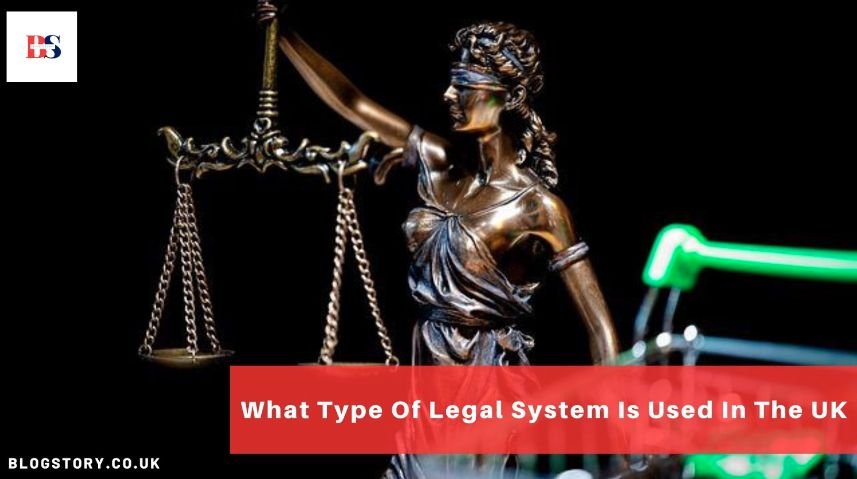
What Type Of Legal System is Used in The UK?
The simple answer is the Common Law System. The legal system in England and Wales is called a constitutional monarchy. The head of any state is the monarch. Conventionally the monarch of a state is politically neutral. If you want a clear answer to that question, the UK follows three legal systems-
(i) The English Law was followed by Wales and England (English Law)
(ii) Northern Ireland (Common Law)
(iii) Scotland (Scott Laws)
So if you want to know about the legal system of the UK, you can read the following article. Here, I have talked about what type of legal system is used in the UK in detail.
What Type of Legal System is Used in The UK?
For a quick fact, you can cite the legal system of the UK as a Constitutional monarchy. But here is a full detail of the legal system available over there-
English Law
English law refers to the legal system applicable to both England and Wales. This law applies to both of these places for criminal and civil matters. Separate from the legal laws, English law has its own sets of legal canon. The sources of civil law are mainly the codification in the constitution passed through customs and by the government.
The laws are not a part of the organizational system. The judges in the court also develop the laws. During the early phase of the law, the justices and the judges were responsible for adapting the Writ system. The aim was to build up a consistent law.
The senior court in England and Wales consists of–
(i) Court of appeal
(ii) High Court of Justice
(iii) Crown Court
The supreme court is the highest court for both criminal and civil cases.
Northern Ireland
Northern Ireland is similar to English law and is a common law system. The court of Northern Ireland is responsible for the administration of this legal system. The supreme court has the highest authority both in terms of criminal and civil cases. Northern law is based on statute law and English law.
Scott Law
Scottish law has its roots in Roman law. It is also characterized by common law with its association with the feudal system. The legal system of Scotland is slightly complicated compared to England Wales and Ireland. But there are some English effects in the Scotts law thanks to the Union Act. The Scotts law is also influenced by European laws through the Treaty of Rome.
The supreme court of the UK is still the ultimate court for both civil cases under Scots law. There are also sheriff’s solemn courts and sheriff summary courts.
As you can see, each jurisdiction has its own set of laws, judges, and lawyers.
However:
(i) Laws derived from the legislation may apply similarly in all jurisdictions.
(ii) Different courts from different jurisdictions may decide cases differently. But, there is an option for a final appeal to the supreme court.
Sources of Law in The UK
Unlike the scientific laws which humans have no control over, the legal laws are a set of laws that we human beings can decide. These laws are decided, created, and even changed by human beings. Now, if we want to discover the sources of the law in the UK we can divide them into two categories.
For instance- (i) Primary Law. (ii) Secondary Law.
The Primary Sources of Law Are –
- Parliament acts or statutes, orders in council, statutory instruments, etc. In short, Legislation is the primary source.
- The decisions made by higher courts and courts of records must be followed by the lower courts.
The Secondary Sources of Law Are-
- The textbooks and commentaries that the legal writers made are secondary sources of law.
- The opinions presented by legal experts are also a secondary source of law.
- Decisions of courts and other jurisdictions are also considered
Common-Law
The common law originated during the reign of Henry II in the 12th C. The reason why it is called the common law is that it is applied equally in the whole UK. Both substantive rules (procedural ones and the offense of murder) are included in the common law.
Civil Law
Civil law in the UK deals with cases between organizations or between individuals. The cases usually conclude with compensation or agreement between the parties involved. The private parties file civil laws while the government is the one to issue criminal cases.
There are a few characteristics of civil law as per which we can define this type of law.
1. They are a codified set of legal rules.
2. In Civil law, there is a binding for all citizens. There is hardly any scope for the law made by a judge in the civil court of law.
3. The documents by legal scholars have a substantial impact on the Civil court.
Different Types of Civil Laws
(i) Contract
(ii) Tort
(iii) Company Law
(iv) Revenue law
(v) Intellectual property law
(vi) Family and the Court of protection law
(vii) Media and communications law
(FAQ) Frequently Asked Question
What type of legal system is used in the UK? Going through the above article has already answered this question. However, if you have any similar questions you can follow the popularly asked questions here –
Is There Civil Law in The Uk?
What Type of Legal System Does The Uk Have?
What Are The 5 Types of Legal Systems?
Wrapping Up
The legal system of the UK is divided into different jurisdictions called English law, northern law, and Scott’s law. But the common law system is applied in all three jurisdictions.
Once you go through this article you will have a clear understanding of the type of legal system applied in the UK. If you have any further questions related to this topic, feel free to ask them in the comment.
You May Like Also:













9 thoughts on “What Type Of Legal System is Used in The UK?”